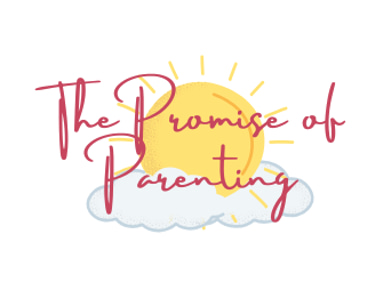
How The Promise of Parenting Fills in the Gaps of Other Parenting Styles
How is the Promise of Parenting different from other parenting approaches?
Parenting styles go beyond just parenting. They define how adults in general, to include teachers, relatives, anyone interacting with kids, behave towards them.
Traditional Parenting is based on hierarchy. I am the parent, therefore you must obey me. When children do not obey, they are punished (sent to room, timeout, yelled at, spanked). Children need to be taught discipline and how to behave properly. Parents do not usually apologize because they are inherently in the right given their authority. Children respect the authority of the parent to the extent they fear the consequences.
Gentle Parenting is non-hiearchical and is based on an understanding that children are doing their best at any given time based on their developmental abilities. The parent treats the child with respect, connection, understanding, and validation and sets clear and consistent boundaries. The child respects the authority of the parent because the parent has respected the child. Gentle Parenting and Attachment Parenting often go hand in hand, with Attachment Parenting have a special emphasis on closeness to the baby in early life; to be present, supportive, and regulating to a baby, especially when they need it most.
The Promise of Parenting aligns with the tenants of Gentle Parenting and Attachment Parenting but with some important distinctions:
It's not about doing or saying the right thing.
Gentle Parenting may try to get desired results by focusing on saying or doing the right thing so that the child feels loved and supported. In the Promise of Parenting, the emphasis is on regulating the nervous system. We can say and do the right thing and are our most loving, confident, calm, and present selves when the nervous system is regulated. We must address the underlying dysregulation in order to show up in the way that our children need and we want, as opposed to trying to force ourselves to show up in a certain way without actually addressing what is preventing us from doing so in the first place.
There is more to attachment than just closeness to the child.
Attachment Parenting focuses on the experience of the small child to give them the most loving and supportive experience possible at a formative time, which is amazing. However, it does not address the underlying dysregulation of the parent that can be preventing the parent from connecting in the most healthy way possible with the child. It also does not address the parent's own attachment style which will inevitably impact the child's attachment system, no matter how close they are kept at that age. The love and support for infants and small children that Attachment Parenting encourages is always helpful, but the attachment style that we will carry through life is also very influenced specifically by how regulated or dysregulated our parents were. This is what will determine whether our children enter life with a secure or insecure attachment. This regulation of dysregulation of the parent's nervous system can also single-handedly determine whether or not later difficult experiences our children face become traumas or not.
When in doubt, always remember the greatest commandment.
The guiding principle of the Promise of Parenting is that the greatest commandment we are given by God is to love. For our own good and for the good of our children we are advised to put love above all else. Love is not an intention or thought that we have. It is a loving state that we embody. The Promise of Parenting recognizes that we are our most loving selves and in this loving state when our nervous systems are regulated. It doesn't matter if we know we love our children when we are acting dysregulated. When we are dysregulated, we do not have access to love and trust and are not embodying a loving state. When we are not in a regulated state, we are in a fight, flight, or freeze state (a fear state that exists on a spectrum of intensity). By simply rewiring the inevitable dysregulation that we pick up on earth, we can show up as our most loving, calm, confident, present, playful selves; feeling good about our parenting. We can navigate the challenges of parenting and life with greater love, patience, confidence, and perspective when we are regulated instead of dysregulated.
"There is no fear in love, but perfect love drives out fear because fear has to do with punishment, and so one who fears is not yet perfect in love." - 1 John 4:18
To learn more about how to bring the nervous system greater regulation so that you can connect better with your kids, rewire your own attachment patterns so you don't pass them on to your kids, and the Promise of Parenting Path to showing up and feeling like your best self in parenting, visit our page: Services & Path to Transformation.
Subscribe to our newsletter
Receive news updates (not daily marketing emails) and the FREE Promise of Parenting Roadmap, outlining the four sources of dysregulation and the 10-steps to overcoming them.
